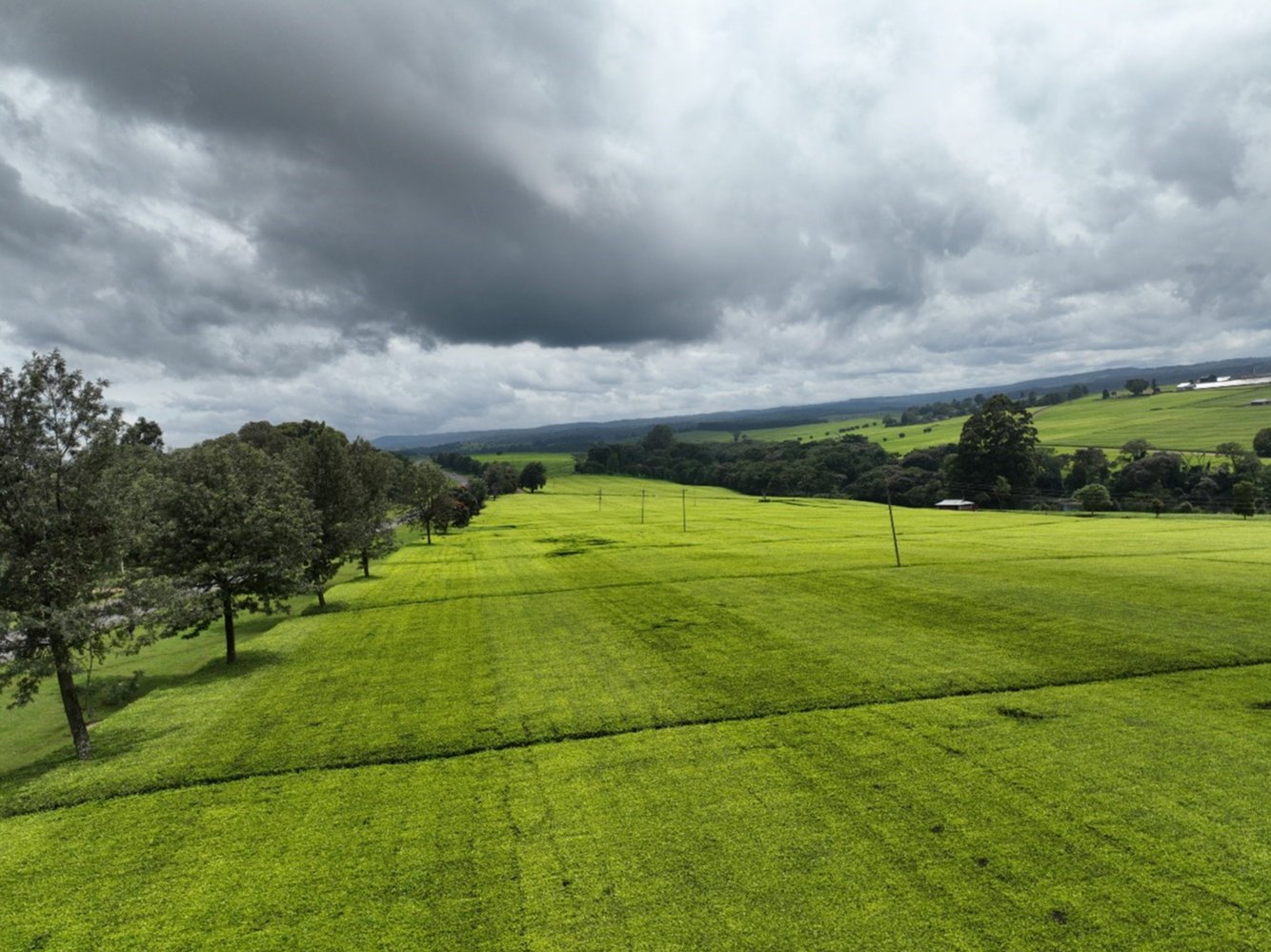
Tea is the leading foreign exchange earner for the country, accounting for about 20.9% of total domestic export earnings and 1.2% of GDP. In 2022, the tea industry earned the country Ksh.163.3 billion (approximately 1.36 billion USD) in export earnings, playing a pivotal role in the socio-economic development of Kenya. The industry supports over 6 million people directly and indirectly, making it one of the leading sources of livelihood in the country. However, its full potential has not been fully optimized due to low levels of value addition and product diversification.
In the global tea trade context, value addition refers to the processing of tea bought at auction in bulk form into products sold at the retail market through branding, packaging in consumer packs (varying in sizes and materials), and product diversification and extension (e.g., flavoring), which have higher value than bulk form. Value addition takes place after the ownership of tea has changed, and consequently, farmers do not benefit directly from the added value.
Generally, black tea is blended and packed into two different consumer products: teabags and retail packets. Opportunities for value-added teas are growing due to shifts in consumer tastes, preferences, and lifestyle concerns, resulting in various tea products such as teabags, retail packet teas, instant and iced tea, scented tea, green tea, and organically produced tea. These have the potential to command higher prices in the global market.
Current scenario of tea value addition and products diversification in Kenya:
- Value addition in the country is estimated at 8% of the total export volume, significantly lower than Sri Lanka's 52%, despite Sri Lanka being an Orthodox tea producer.
- Small-scale tea farmers face limited capacity to diversify into Orthodox and other specialty tea manufacturing. Expanding an existing crush, tear, and curl (CTC) plant requires about Kshs.150 million, while a new plant costs an estimated Ksh. 350 million (for a 5-million-made tea capacity).
- Multinationals show reluctance to invest in local value addition due to costly investments, port inefficiencies, and poor infrastructure, making it challenging to meet lead times in destination markets. Additionally, multinationals have already established market networks in destination markets.
- Value addition primarily involves repackaging into convenient small packages depending on the market.
- Incentives offered through the Tax Remission Export Office (TREO) by the Government have lengthy processes and are time-consuming, resulting in underutilization by value chain players.
- There is no unified approach to value addition across the value chain.
Factors hindering tea value addition and products diversification in Kenya
1. High costs of blending and packaging machines, ranging from Ksh. 22 million to Kshs. 30 million, depending on the desired capacity.
2. Prohibitive costs of packaging materials due to 25% import duty and 16% VAT, with locally available materials potentially not meeting export market standards.
3. VAT levied on locally consumed tea increases the cost of value-added tea, making it less competitive compared to tea from other East African countries that do not levy VAT.
4. Consumers in established markets exhibit strong brand loyalty, making it difficult to penetrate new brands. For instance, in the United Kingdom, brand loyalty is as high as 56%, and multinationals heavily invest in brand promotion to protect against erosion of brand loyalty.
5. Lack of dedicated credit resources, leading to reliance on commercial banks with relatively high financing costs.
6. EPZ investment conditions are unfavorable to the tea sub-sector, with requirements such as ceding ownership.
7. Some importing countries impose high-level taxes, reaching up to 75% on value-added teas, including Russia (12%), Taiwan (25%), Iraq (75%), Egypt (60%), and Saudi Arabia (12%), among others.
Efforts being made to remedy the situation
The Product Development and Adaptation programme aims to assist Kenyan tea companies in exporting packaged tea through value addition interventions in product packaging and branding for effective competitiveness in the international market. The program, currently underway, is implemented in three phases:
i) Formation of a Tea Industry Value Addition Steering Committee comprising officials from the Tea Board of Kenya, Kenya Tea Development Agency, and Kenya Export Promotion and Branding Agency.
ii) Identification of tea companies by the Tea Board of Kenya from three regions (Phase I: West of the Rift Valley Region, Phase II East of the Rift Valley Region, Phase III Coast Region).
iii) Preparation of the implementation plan for company visits by the steering committee.
iv) Onsite company coaching for selected tea companies from the three regions, including product packaging, branding, and interviews.
v) Capacity building for marketing managers on export trade training, covering the introduction to exporting for new and prospective exporters and Enterprise Export Capacity Development for active and existing exporters.
vi) Product Certification audit by the Kenya Bureau of Standards to ensure quality assurance on packaging standards.
vii) Holding a 1-day mini exhibition in Nairobi to showcase the newly developed tea packages as the Kenya tea brand (Mark of Origin).
viii) Test marketing and market linkage for the newly developed tea products (packaged). The steering committee will identify suitable regional/international exhibition events for the selected tea companies to carry out test marketing in line with the product categorization.
